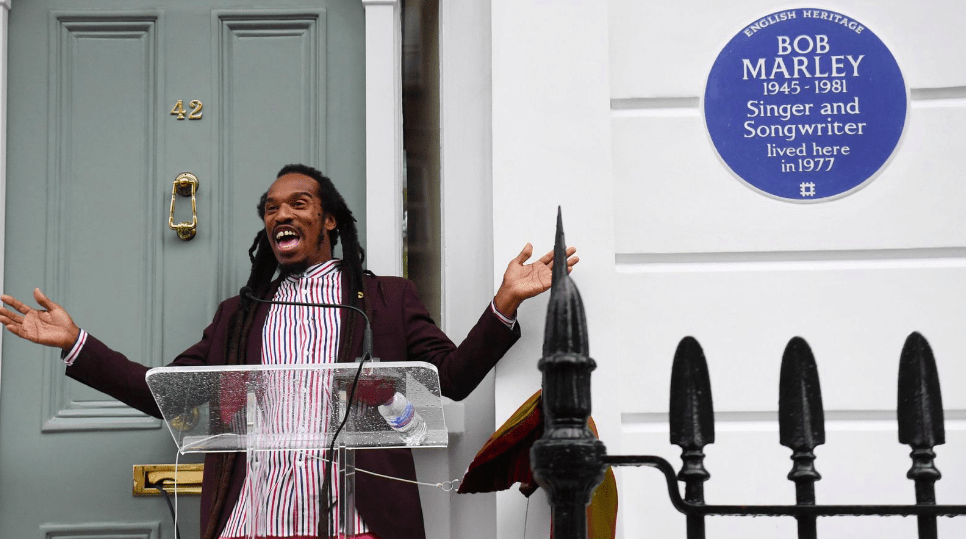Famous Reggae musician, Bob Marley, has been awarded an English Heritage blue plaque at the house he lived in when he finished recording well-known album, Exodus.
Marley has been described by historian and broadcaster David Olusoga as: “more than a brilliant musician, he became a cultural icon who blazed a trail for other black artists.”
His house, 42 Oakley Street in Chelsea, London, has been marked with the plaque after a drive to uncover more addresses of ethnic minority figures took place.
The plaque had been stuck in the planning process because Marley was not registered in phone directories or electoral registers. During an arrest for cannabis possession in 1977, he also gave a different address to prevent the police from searching the house in Oakley Street for drugs.
This house is the one that Marley lived in having been shot in 1976, yet the plaque does not tell of the stories of drug use, or even attempted murder. It reads: ‘Bob Marley 1945-1981, Singer and Songwriter, lived here in 1977’.

In 2015 English Heritage established a working group to reinvestigate the addresses of noted ethnic minority figures. They currently manage more than 400 historic buildings and cultural sites across the country.
Blue plaques commemorate the link between a location and an individual who was regarded as “eminent” in their field. However, out of more than 900 blue plaques across London, only 4% are currently dedicated to black and Asian people.
Musicians to have received the plaque include John Lennon, Mozart and Freddie Mercury. Their achievements should have made an “exceptional impact in terms of public recognition”, and they must have been dead for at least twenty years.
Benjamin Zephaniah, Rastafarian writer and poet, unveiled the plaque at Marley’s house earlier this month.
He said: “it’s very difficult to say what Bob Marley would have said about this plaque, but he once did say ‘live for yourself, you will live in vain, live for others, and you will live again’, so I’m quite sure he would say that this is for his people and his music.”
Amelia Cutting – News Editor
Image: Kirsty O’Connor via Sky News

